Text by David Oates
Artwork by Alex Hirsch
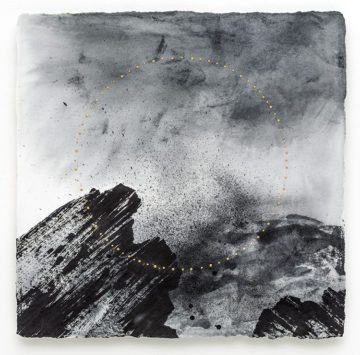 1. “A more perfect union.” The Founders expressed a breezy confidence, didn’t they? As if such a thing were possible – the distant states cohered into a nation; the various occupants working it all out. Loyal. Collaborative. Taking part in the common welfare. While remaining, of course, individual and autonomous and free, free, free. (Certain restrictions applied.)
1. “A more perfect union.” The Founders expressed a breezy confidence, didn’t they? As if such a thing were possible – the distant states cohered into a nation; the various occupants working it all out. Loyal. Collaborative. Taking part in the common welfare. While remaining, of course, individual and autonomous and free, free, free. (Certain restrictions applied.)
I’m a child of the sixties but have kept a wary distance from virtually all forms of organized groupiness, togetherness, or even (alas) belonging. I’m a curious observer, though.
2. Planetary Ecology. The modern environmental movement based itself on the analogy of the organism: we were really one big animal. “We” meaning all of nature (Gaia), or an ecosystem, or a human community. It worked on various levels! Lewis Thomas, one of our gurus, held up the example of a critter that was disunified cells, squiggling around individualistically (“voting straight Republican” he quipped). . . until something signalled them and they joined together as one, “solid as a trout”! That this exemplary organism was slime mold did not strike us, in the sixties, as funny. Decades later, our sliminess seems way less promising.
Now our planetary health teeters on a terrifying brink and the message of connectedness seems more compelling than ever. Biologically, we are interwoven in increasingly obvious ways we still can’t seem to accept.
3.”There is no such thing as society.” The answer to all this pinko nonsense. Absolute individualism: Margaret Thatcher’s act of visionary blindness. Almost modernist in its subtractive rigor, its negation of biology, history, ethics, art, and love. Complete absence of any metaphor at all, except the one of isolation. The lonely self, scheming to cash in on strangers.
Ronald Reagan sold the same thing in its faux-cowboy version. We were high-plains-drifters, handsome and hard, and the gov’mint was finally Off Our Backs (though we depended on it, and on each other, ‘most every hour of the day). E Pluribus. . . Pluribum?
The instinctive power of this delusion is practically legendary – it sets in at adolescence (“ don’t tell me what to do!”) and, for many, never changes after that. A vision of freedom but not responsibility. Or gratitude.
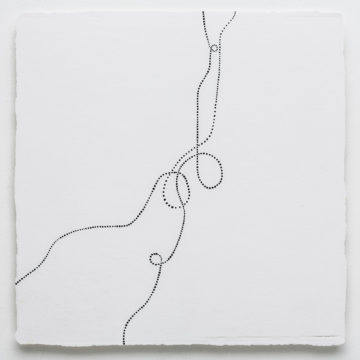
4. “…we, though many, form one body, and each member belongs to the others.” Here’s a radical and intimate unity, the opposite of Reaganite/Thatcherite libertarianism. True, St. Paul meant to limit it to his own tribe of believers. Which made it not so radical after all. (Did you catch the Alabama Baptist politician who said – for the record! – that if you weren’t of his faith you weren’t his ‘brother’?)
Yet Jesus had applied this connectedness promiscuously. Who is my brother? or my neighbor? Everyone. Even your enemies! Maybe Jesus really did take that rumored journey to India during his missing years, where he might have heard the Vedic version: Whoever you encounter, Thou art that.
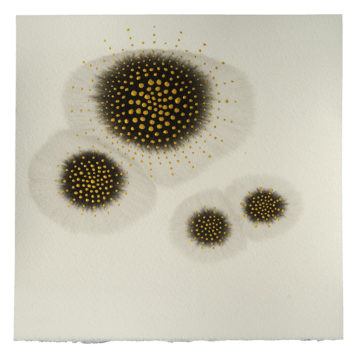
5. The Hive. In the totalitarian 1920s and 30s, a couple of political systems took connectedness literally. It sounded good on paper. But instead of being brothers and sisters in a divine family, we were to be bees, or ants, of The State. And instead of relieving suffering, The State harvested it like a crop of nectar. Why? To keep its leaders in never-ending vodka. Or schnapps.
Utopian lip-service to connectedness gave the whole idea a bad name for a long, long time.
6. Team Player. Sounds sporty. Isn’t. A comfortingly American trope, implying individual pep within a loose, and optional, unity. Really just a repackaging of the 1950s Man in the Gray Flannel Suit – subordinate, conformist, obedient. Ready to take one for the team while a bellowing abuser/boss/coach/owner gets most of the credit (and income).
Teams I’ve been on? Few. Though I ran my knees to a powdery nothingness for a high school cross-country coach who was, actually, extraordinarily kind – and skillful in the arts of exhaustion.
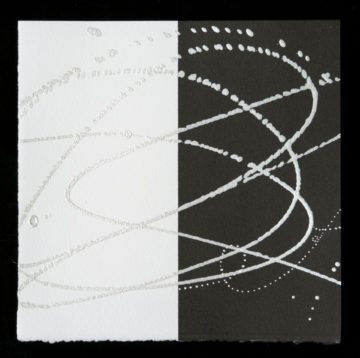
7. Solidarity. Another middle term, somewhere between cowboy and ant. Once heard from unions and progressives. Remember them? It meant that your fate was mine, and I would stand by you. Solid. Righteous. Occasionally powerful.
Hard to visualize, though – a real problem for a metaphor.

8. Fan. A hollowness filled, then depleted, then filled again, by someone else’s excellence. Makes noise in the process.
A fan or follower is consumer never producer, and thus the capitalist/political world’s preferred substitute for “citizen.” A fan’s imaginary identification with a distant team, ideology, star, or Leader exists primarily in the flicker between screen and viewer, who being isolated is easily manipulated. No reciprocal duty is owed – teams move; pols do what is expedient; products and celebrities make money. With such insubstantial non-belonging-belonging, fans fill their hours, decorate themselves, indeed build their identities.
In the online version, we may “friend” or “like” certain computer-flickers, and be “liked” ourselves if we are well-packaged. Thus we become not only consumer but also product. The endgame of a market-based society is reached. Hurrah.
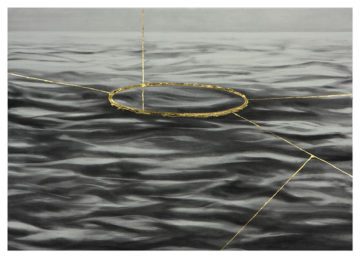
9. The Divine Oneness. For those who still didn’t get the message, Jesus said in the end that we – when we suffered – were actually him. That is, Him. And when someone did a kindness to a suffering person, that kindness was done to Him. Who was, the Christians say, God.
So when we look at each other, who are we really seeing? I’m not a believer, myself, so I offer this only for comparison. For contemplation. Who indeed are you, to me?
I gave a dollar to a drunk the other day, and I still don’t know why.
10. Citizen. A limited vision which nonetheless yields an elevated dignity: Duty, played out in the Public Realm. Here all are (theoretical) equals, denizens of the city, co-creators of a shared space of governance, art, love. . . of all potentiality, really. Citizenship demands skills of originality and creativity, yet also of restraint and negotiation, of getting along. We have to put up with each other! Greek city-states invented the concept, and ennobled it: They held that a merely private, bourgeois, money-seeking life was only half a life. In public, it seemed, you stepped into your larger self.
Maybe this is what those gentleman Founders had in mind. Many of them were decent classics scholars, aware of the Greek city-states and their interesting experiments in democracy (punctuated with tyranny).
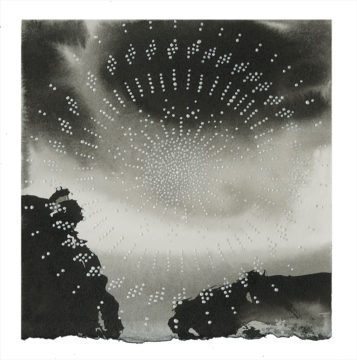
11. _______________ (to be discovered.) We seek a more potent language for this hoped-for reality. Of what flesh are we? How is our scattered sameness to be imagined? What metaphor could possibly do justice to the mystery of the solitary soul, webbed in with humanity on every side, kin (and killer) of every living thing?
Alex Hirsch is a painter and glass artist. Her work hovers between abstraction, suggestion and evocation. Works in glass can look like drawings or paintings; her paintings can look like photos or drawings. The ideas matter. These featured artworks explore energy and presence. She put one mark or stroke down after the next until a sum arose. www.AlexHirschArt.com
NOTES AND SOURCES (in order given)
1. “A more perfect union” –The Preamble to the U.S. Constitution, of course.
2. “Gaia, etc.” –See my book Earth Rising: Ecological Belief in an Age of Science for metaphors of eco-connectedness. When Lewis Thomas’s Lives of a Cell appeared in 1974, it felt like it gave voice and substance to a lot of what “the sixties” was trying to think (when sober enough to think).
3. “There is no such thing as society” –Margaret Thatcher (Speech to Conservative Party Conference, 9 October 1987).
4. “…so we, though many, form one body, and each member belongs to the others. . . . If one part suffers, every part suffers with it” –Romans 12:5 and I Corinthians 12:6.
“love thy neighbor” –(Old Testament) Leviticus 19:18; (New Testament) Matthew 5:43.
“Thou art that” –In the West we may know this Hindu scriptural aphorism chiefly through the Joseph Campbell book by the same name.
6. “The Man in the Gray Flannel Suit” –A 1955 novel by Sloan Wilson and 1956 movie starring Gregory Peck.
9. “that we – when we suffered – were actually. . . Him” –“For I was an hungred, and ye gave me meat: I was thirsty, and ye gave me drink: I was a stranger, and ye took me in. . . .Inasmuch as ye have done it unto one of the least of these my brethren, ye have done it unto me”: Matthew 25: 35-40 KJV.
10. “Citizen. . . public realm” –A point made comprehensively in the works of Hanna Arendt. (If I were a classics scholar, I could give the Greek references. Anyway, Arendt gives them.)
IMAGES BY ALEX HIRSCH (in order given):
(image following title): Skirting the Harsh Places. Glass, 22K Gold, Mixed Media.
(follows #3): Journeys I. Glass, 22K Gold, Mixed Media.
(follows #4): Untitled. Watercolor and Ink on Paper.
(follows #6): This And. Ink, Acrylic and Gouache on Paper.
(follows #7): Falling Up. Watercolor, Ink, Pigment and Gold Leaf on Paper.
(follows #8): Metaphysical Grounding. Watercolor, Ink, Pigment and Gold Leaf on Paper.
(follows #10): Untitled. Watercolor and Ink on Paper.
